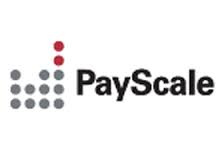DATA CAN BE MANIPULATED TO CHANGE RANKING
Some top business programs are more generous than others. For example, Wittenberg University and the Wentworth Institute of Technology provide financial aid to 99% and 98% of their students, respectively, a number complicated by their over 30% dropout rates. In general, most school aid hovers in the 45% to 55% range, with highly regarded undergraduate business programs like the University of Virginia (33%), Notre Dame (57%), and the University of Arizona (79%) falling outside these parameters.
At the same time, private and public undergraduate business programs experienced a divide. If you combine in- and out-of-state publics, 14 of the 25 programs with the highest ROI (in real dollars) were private. Add financial aid to the equation and the split becomes 17-to-8 in favor of private programs. The in- and out-of-state costs also have major impact. Just look at the University of North Carolina, where in-state business graduates made $700,000 against $612,000 for their out-of-state peers. As you can imagine, four-year costs for in-state North Carolina students was nearly half the price borne by out-of-state residents, $94,100 to $182,000 (with in- and out-of-state students receiving nearly identical aid amounts on average).
Indeed, these rankings aren’t set in stone. They change based on the criteria set by users. For one, PayScale users can change whether they live on or off campus. For example, Loyola University of Maryland leaps from 11th to fifth in ROI dollars if students live off campus, saving them $21,000 over four years. The rankings also shuffle a bit when financial aid is added to the mix. For example, while the top five remain the same, Cornell climbs from 13th to ninth in ROI when aid is factored into the data.
BUSINESS MAJORS STILL LAG BEHIND COMPUTER SCIENCE, ENGINEERING
As with previous years, business graduates tended to earn more over 20 years than almost every other major. For example, the highest return in psychology for just a bachelor’s degree is $570,000 — less than half the return for a Berkeley business major ($1,270,000). And the top pay isn’t much better for the humanities ($714,000), sciences ($578,000), and arts ($508,000). But business majors face stiff earnings competition from computer science and engineering majors. With the former, graduates from 17 programs gained a net ROI of a million or more dollars when financial aid was excluded. And computer scientists and mathematicians from another 19 programs pulled down a net of $903,000 to $989,000 over 20 years. That far exceeds the four business programs where students made $900,000 or more. Among engineering graduates, graduates from 24 schools made $900,000 or more without financial aid factored in.
Why is this? Thank the popularity of business master’s degrees. In 2012, 25.4% of all master’s degrees were centered in business. That’s a far and away higher than the number of master’s degrees being conferred in engineering (5.3%) and computer science (2.8%). While former business majors often comprise fewer than a third of student bodies at top MBA programs (such as 27% at Duke and 32% at Harvard Business School for their 2017 classes), there are far fewer computer scientists and engineers there — just 17% of the 2017 HBS class held engineering degrees, for example. The number jumped to 32% at Duke, but that figure also includes science majors. And the number of computer scientists at Duke and Harvard is so small that they were dumped into the proverbial “Other” category. As a result, this higher pay for computer scientists and engineers likely stems from fewer members of these groups moving on to graduate school.
(To see the rankings and data for the highest-paying business majors, go to the next pages.)
DON’T MISS: THE TRUE VALUE OF A BUSINESS DEGREE and THE HIGHEST PAYING MAJORS AND SCHOOLS













Questions about this article? Email us or leave a comment below.